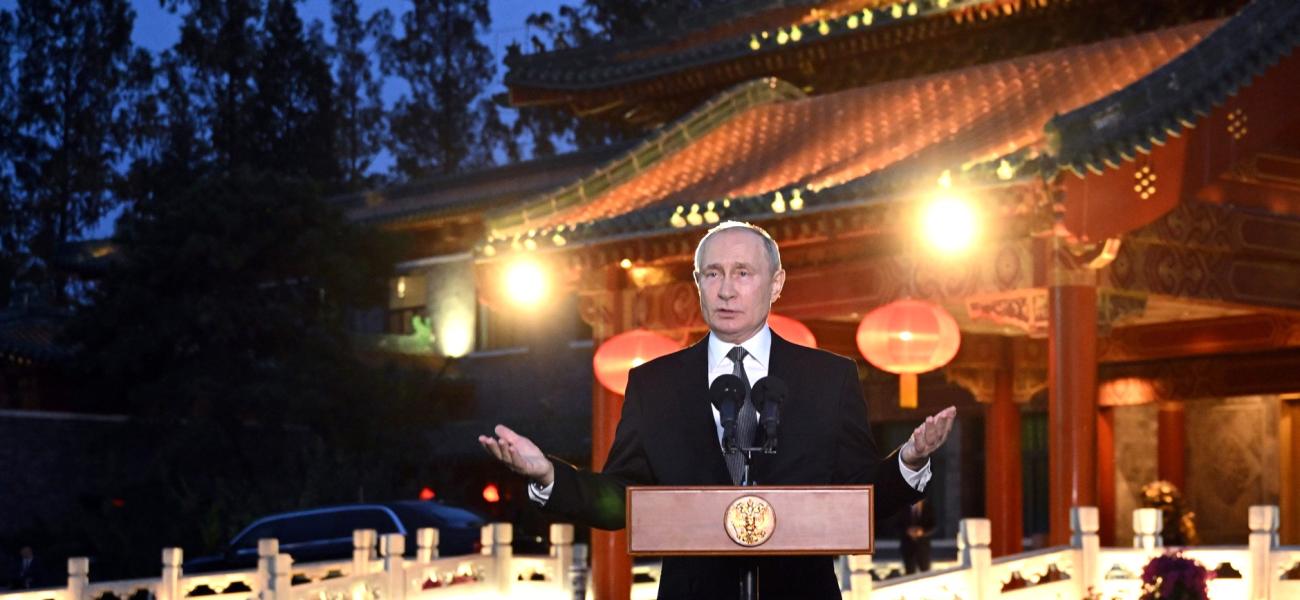
Putin Returns Empty-Handed From Beijing
This article originally appeared on The Bell.
Propaganda fanfare, but no economic deals as Putin visits Beijing
Russian President Vladimir Putin this week traveled outside the former Soviet Union for the first time since the International Criminal Court issued an arrest warrant for him in March. Putin was attending the Belt and Road summit in Beijing, an event accompanied by great propaganda fanfare. However, despite much back-slapping about the Sino-Russian partnership, no major economic agreements were signed.
- Most significantly, just as in his previous meetings with Chinese premier Xi Jinping, Putin was unable to secure any agreement on constructing the long-awaited Power of Siberia 2 gas pipeline that will export Russian natural gas from the Yamal Peninsula in Western Siberia to China. Six months ago, after meeting Xi in Moscow, Putin asserted that “practically all the parameters” of the project had been agreed, and all that remained was to ink the contracts. This sounded like wishful-thinking at the time, and so it proved to be. Despite the political and propaganda value of sealing such a deal, there was no mention of it in Beijing this week. Apparently the two sides are still haggling over the commercial elements of the deal – price formulae, supply volumes and mandatory purchase levels (take-or-pay).
- Energy expert Sergei Vakulenko, a nonresident scholar at the Carnegie Russia Eurasia Center has shown that even the first Power of Siberia pipeline, launched in 2014 and negotiated when Russia was in a far stronger geopolitical position, has not been a hugely profitable project for Moscow. The terms for this pipeline were less lucrative than Russia’s gas exports to Europe — and even Central Asian gas suppliers to China had a better deal. Russia has never officially disclosed the details of that deal.
- However, while Russia needed Power of Siberia 1 as a political project, now, with no way of selling to Europe, China is its sole remaining market for Yamal gas. New LPG has also arrived on the market. This all weakens Moscow’s negotiating position. With its strengthened hand, China apparently expects a significantly reduced price.
- Despite its political value to Russia, an agreement is unlikely to be signed anytime soon. “Right now, China has no urgent need to sign up to a gas agreement. There is no risk that Russian gas will be bought by someone else. Also, there is no risk that Russia will need time to fully develop the field — gas from Yamal can go to China in almost full volumes as soon as the pipeline is ready,” Vakulenko told The Bell. “For China, it’s worth waiting a couple of years before agreeing on a price – in that time new volumes of LPG from Qatar and the U.S. will come onto the market and we can expect global prices to fall. It’s better to negotiate a price in those circumstances.”
- Even if a new pipeline to China is eventually brought online, it will not mean Russia is able to replace the approximately $20 billion a year it used to earn from gas exports to Europe. Neither the price, nor the volume, of new gas supplies to China would compensate for the European revenues lost after the full-scale invasion of Ukraine. In 2019, Russia exported 165 billion cubic meters of pipeline gas to Europe and Turkey. The potential capacity of Power of Siberia 2 would be 50 billion cubic meters of gas (and it would be sold at much lower prices than for European contracts).
Why the world should care
The Power of Siberia 2 saga illustrates the extent of Russia's growing dependency on China. Moscow and Beijing might like to present their relationship as a partnership of equals, but it is Beijing that holds the economic trump cards.
Click here to read the full newsletter on The Bell's website.
Photo shared by the Russian presidential press service (Kremlin.ru) under a CC BY 4.0 license.
